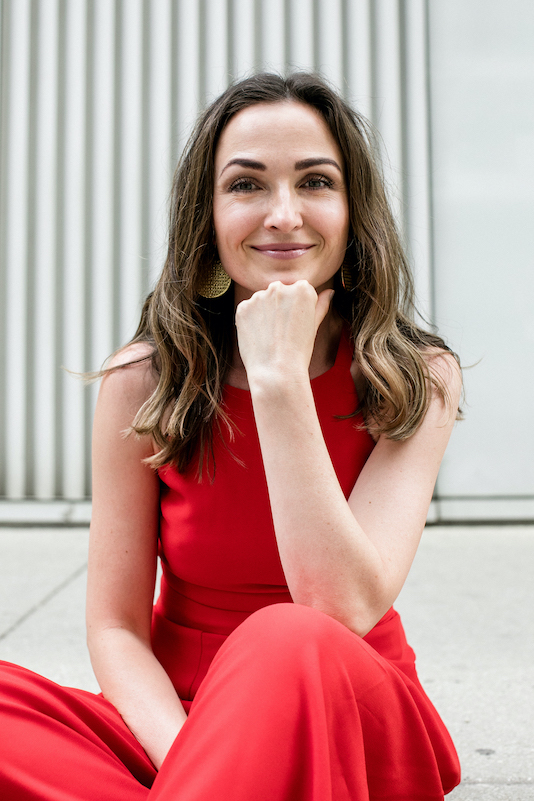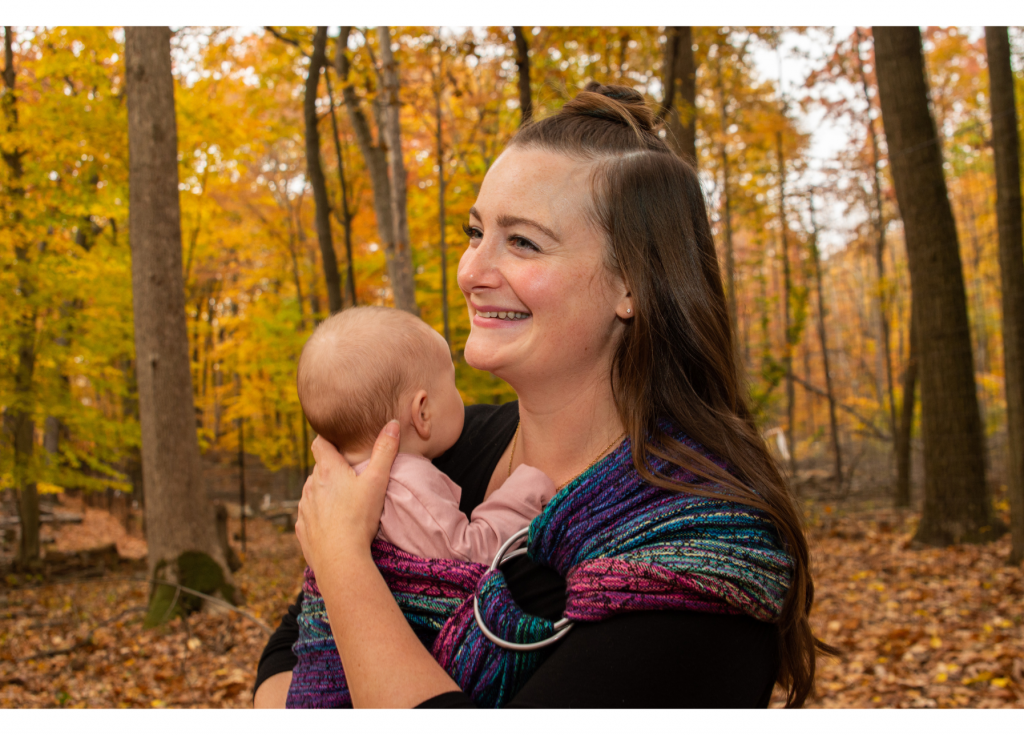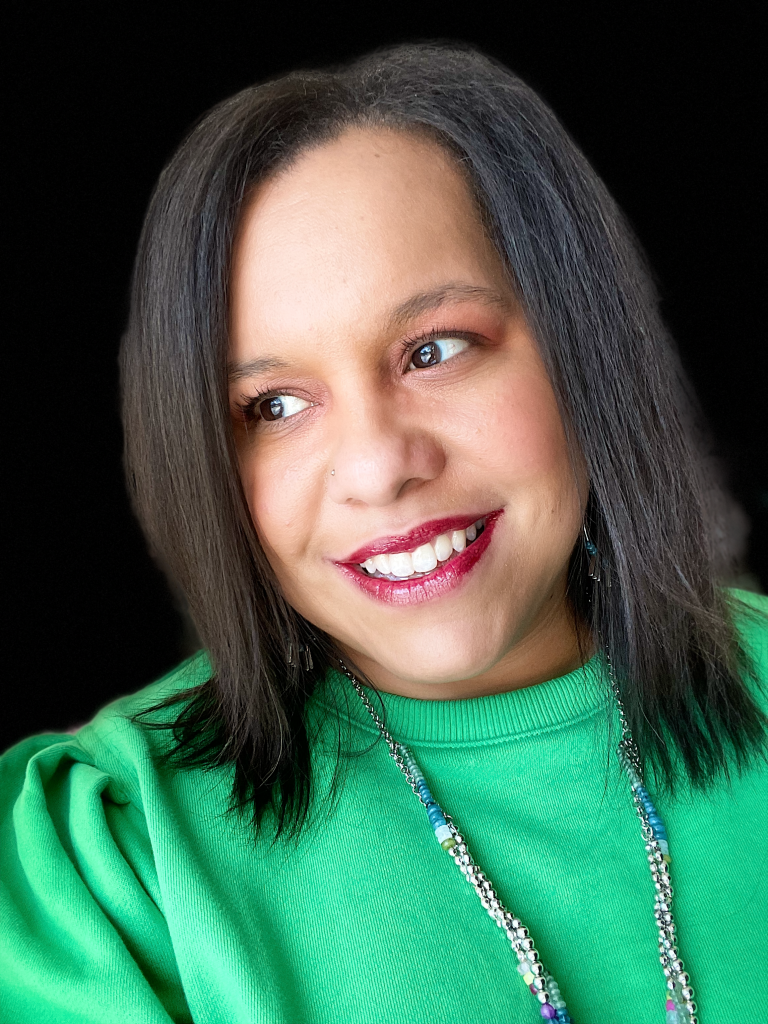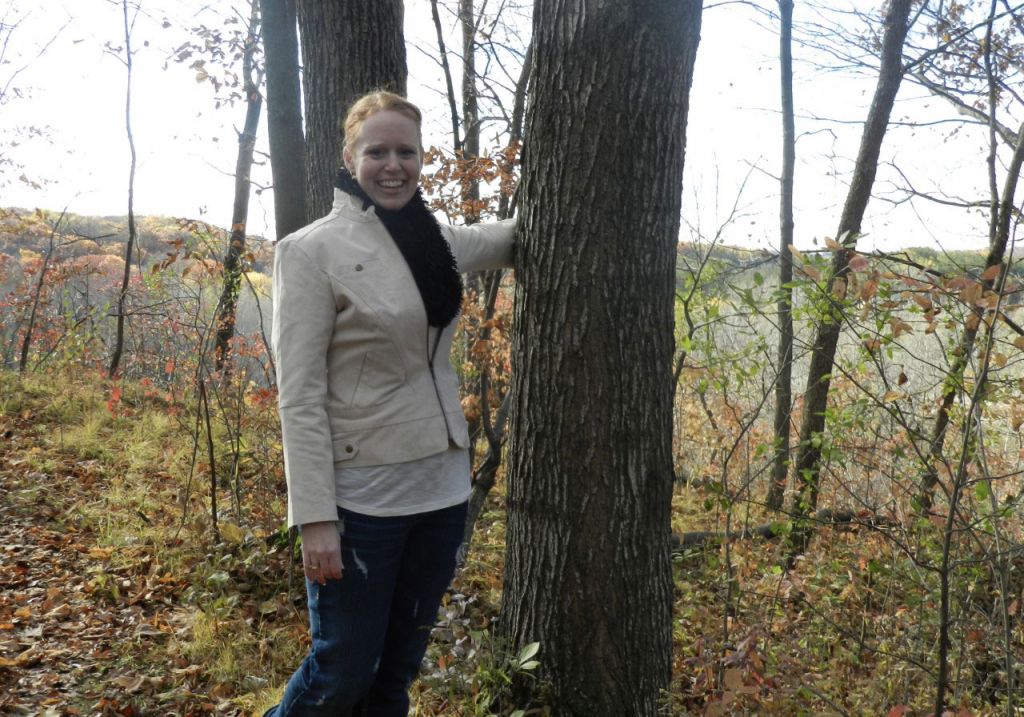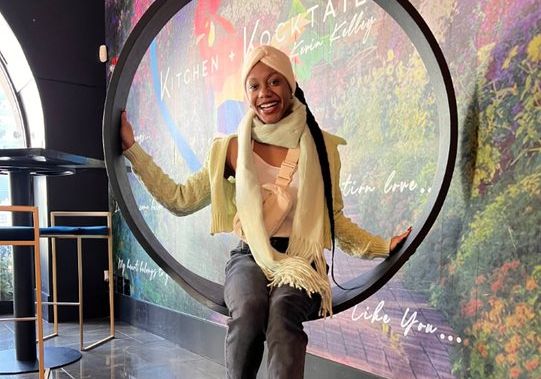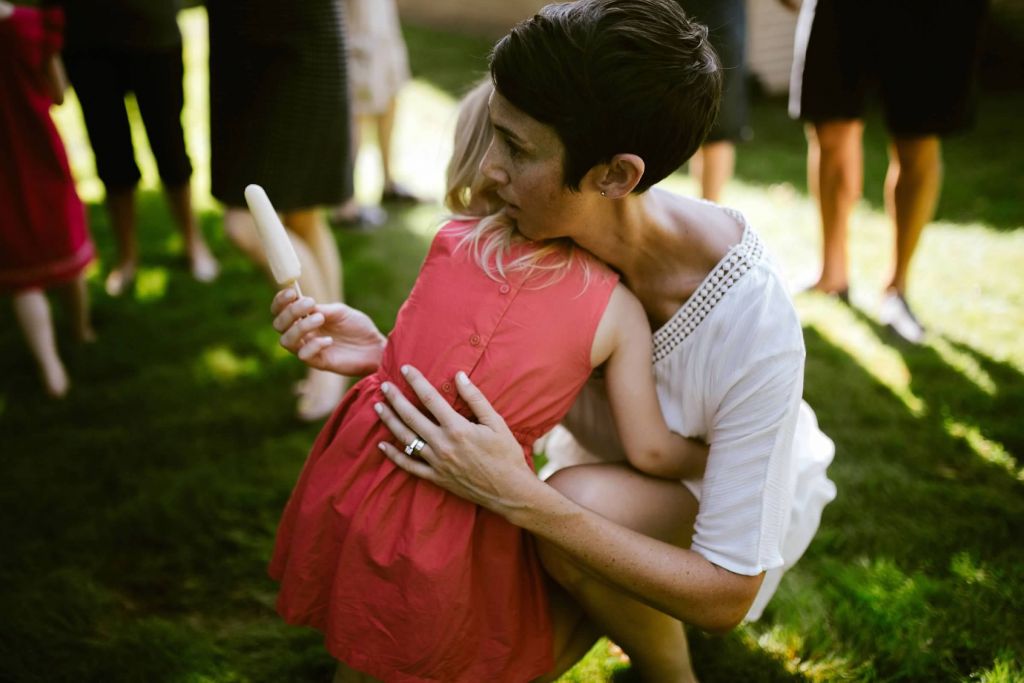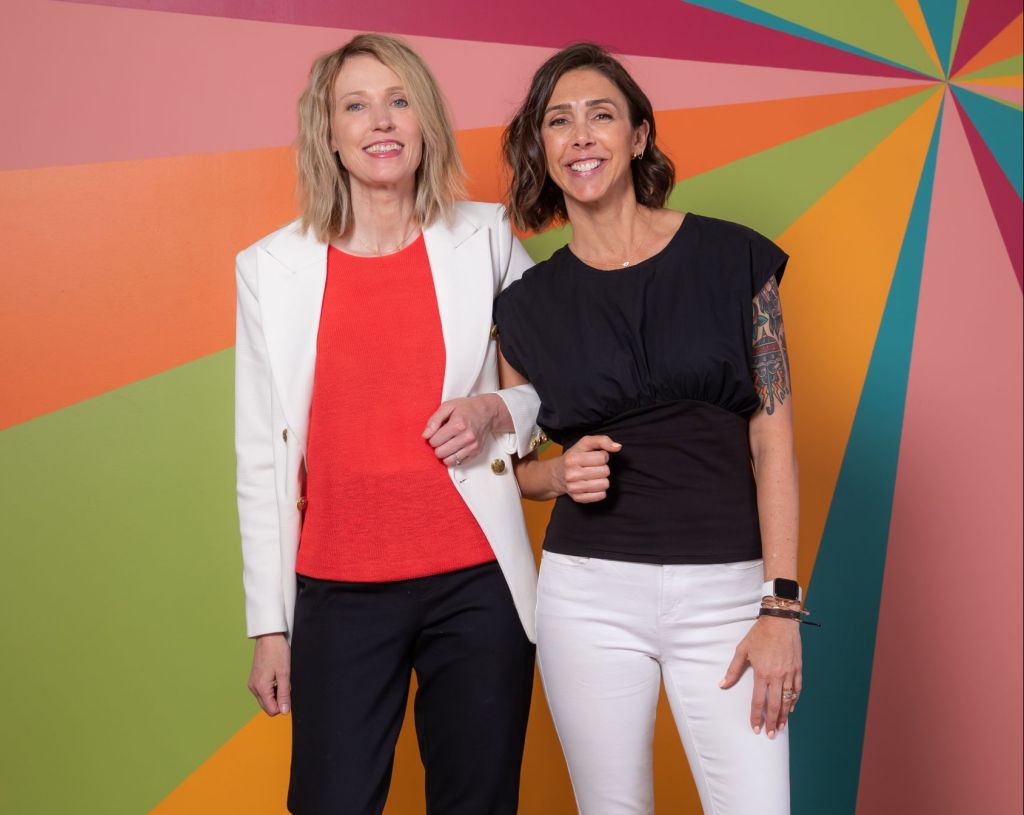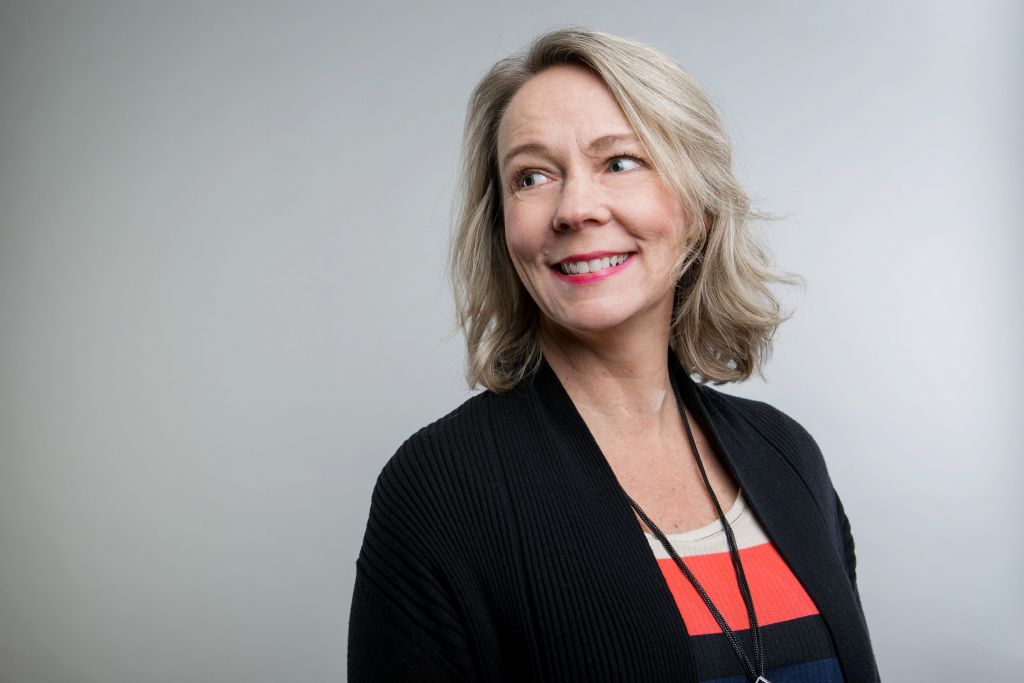Fashion for Breastfeeding: Podcast Episode #170
Kristin discusses challenges of the professional mother with Magda Lasota Morales, founder of MLM Brand. Magda created a timeless line of dresses for breastfeeding and pumping moms. You can listen to this complete podcast episode on iTunes, SoundCloud, or wherever you find your podcasts.
Welcome. You’re listening to Ask the Doulas, a podcast where we talk to experts from all over the country about topics related to pregnancy, birth, postpartum, and early parenting. Let’s chat!
Kristin: Hello, hello. This is Kristin with Ask the Doulas. I am beyond excited to chat with Magda Lasota Morales today about her amazing brand, MLM Brand, and her journey into motherhood. Magda is a mom of two and founded MLM because she wanted to make the fourth trimester easier for moms by creating a collection of elevated, timeless maternity pieces. Welcome, Magda!
Magda: Hi, Kristin! Thank you so much for having me. Thank you for this beautiful introduction. I was like, wow, is this me? But yes, hello, everyone. Magda here. Hello from sunny LA. I know the weather can be a little finicky around the country, but I’m sending all the positive sunny vibes your way. I’m so excited to be here, Kristin. Thank you!
Kristin: So happy to chat! Now, I would love to hear how you started in the corporate world and really had this dream and brought it to life because many of us have ideas, but to really – especially when you’re getting into apparel, to make it happen is a whole other level.
Magda: Yes. Oh, Kristin, exactly. So honestly, I think becoming a mom gave me that confidence to do it because now being into – I have two boys. They’re 5 and 8 now. Now that they’re a little older and they feel like I’m finally catching a breath, and looking back at my journey, I think to myself, I can’t believe I actually did that. And I think that, you know, when I became a mom, I had that, like – I felt very powerful. I had that inspiration and confidence that only motherhood really can give you, outside of other experiences. So I started the brand about three years ago. It took a couple more years before that to actually get the design, the first design to the place where I felt like, yes, let’s bring it to the market. Let’s bring it to the mamas. So it’s been a long time sort of in the work and a long time coming. My background is actually political science and survey research, so I worked in corporate world when I had my first son. And I mostly worked with men, and it was – in my case, it was kind of a blessing because they didn’t ask many questions, just kind of let me take the lead on the pumping front, on kind of getting the flexibility that moms need and deserve when they are asked to go back to work so early, as moms in the US are, right? I was very lucky, and I took eleven weeks off, and that still felt so soon to go back to work. But I was determined to do it. I felt like everyone else was doing it. You know, at that point, I didn’t know many moms in my community that had a similar experience of working, pumping, and trying to juggle it all. So I was just determined to do it. But at work, I found myself – I didn’t really have a path, like anyone to sort of guide me through the process. HR was kind of hands-off. They weren’t really that helpful in my case. So I worked in corporate world, and being in Chicago, I actually really – everyone loves summers in Chicago, so –
Kristin: Oh, yes. I’m not far from Chicago in West Michigan.
Magda: Exactly. No, you’re in Michigan, yes. So I was really excited to wear dresses. It’s a couple of months a year that you can really wear your summer clothes, and I realized that it was impossible to pump and to nurse in my current dresses. So I kind of set out to design the first prototype, and as I said, it took, you know – it took a couple of years to get the design right, and my breastfeeding journey with my first son ended at that point. But by the time I had my second son, who’s 5 now, I felt like I finally got the design right, and I launched the brand in 2019, in June of 2019, so shortly before the pandemic. And it’s been wonderful. It’s been challenging but wonderful at the same time. And I’m just happy that I was able to do it, and I love hearing from moms how our designs, how my designs make their pumping journey, breastfeeding journey easier.
Kristin: Yeah. I mean, you definitely speak truth about just wanting to have professional attire, wear a dress, and that limited time that you have in the corporate world to take that pumping break. It’s not like you have time to take the dress all the way off, nor would you want to. And so the fact that you designed this little black breastfeeding dress with the corporate mamas in mind, but it’s also so needed, whether you are a guest at a wedding or going to an event, like a luncheon, and you want to dress up, but you also know that you need to pump. Or if you have your baby with you, feed your baby directly.
Magda: Yeah. So, absolutely. And that was just, you know – when you become a mom, when you become a parent, your life changes so much, and I felt like so did my wardrobe, right? I still wanted to look, you know, good and feel confident in the way I dressed, but I felt like I was lacking these pieces that were pumping and breastfeeding friendly in my closet. The first dress, the little breastfeeding dress, LBD, black LBD, in short was the first design, and I’ve designed two more dresses since then, kind of with my lifestyle changes in mind. So I wanted a dress that was a little bit more casual that you can just kind of wear to the playground or grocery shopping or just hanging out with your girlfriends if you are a mom that works at home or has kind of a different flexible schedule outside of kind of 9:00 and 5:00. And then I designed another dress that sold out so quickly. I’m hoping to bring it back shortly, more of a flowy, summery, boho style that has been very popular style with moms. So my mission is to really just transform my favorite dresses, the dresses that I wear now, even though I’m not breastfeeding anymore, into breastfeeding-friendly designed. And yeah, I think that it kind of makes my inspiration going because whenever I have a dress, I’m like, oh, my gosh, I really, really love it. I immediately think, how can I make it breastfeeding friendly?
Kristin: I love your Instagram posts and your dresses. It almost makes me want to have another child, but I’m pretty much beyond that point. I had no options when my kids, who are 9 and 11, were born as far as being fashionable, and like you said, dresses. So I love everything that you stand for, and your style is so sleek and modern.
Magda: That’s definitely the goal. Just to add to that, I love seeing the innovation in the field happening right now and the resources available to moms. I became a mom eight years ago, and I either didn’t know about the products that were out there because Instagram wasn’t as prevalent eight years ago as it is right now. And probably a lot of the products and the resources weren’t available – even though, you know, I was in Chicago, so I had a six-week postpartum group of moms that was facilitated by the lactation consultants at the hospital in Hyde Park Dayton University of Chicago. So I had some resources and support, but I felt like it’s such a major change. Becoming a mom is such a major, monumental change in your life that it felt like I needed a lot more, you know? A lot more. And I loved to see there are, you know, services, like everything that you guys do at Gold Coast Doulas. I look at your website and I look at your Instagram and your newsletter, and it’s like, I wish I had access to this when my kids were little, when I was struggling with feedings. I think the sleep deprivation was the really big thing for me.
Kristin: Yeah. Same, absolutely.
Magda: Yes. So I just really love – you know, I’m just like a very sort of small part of the movement to turn the attention and the support to the moms, right? We’re the ones that go through this experience of giving birth, and as you and I know, it can really be traumatic sometimes. And I feel like for the longest time, yes, I know women have given birth for years and ages and centuries, but I feel like, you know, in modern times, there’s so much more pressure and expectations put on modern families that the recovery period and the whole experience of being pregnant and the postpartum period is so stressful. It’s so stressful, right?
Kristin: Yeah, in other countries, the community and the family gives so much more support. In the US, oftentimes families that we support at Gold Coast or in our Becoming course, they don’t have family. They move for a job. They don’t really have a community to rely on. So I do agree with you about your support group and just having a circle of women who are going through the same thing at the same time and how valuable that was for you back in Chicago. So community and resources are so important.
Hey, Alyssa here. I’m just popping in to tell you about our course called Becoming. Becoming A Mother is your guide to a confident pregnancy and birth all in a convenient six-week online program, from birth plans to sleep training and everything in between. You’ll gain the confidence and skills you need for a smooth transition to motherhood. You’ll get live coaching calls with Kristin and myself, a bunch of expert videos, including chiropractic care, pelvic floor physical therapy, mental health experts, breastfeeding, and much more. You’ll also get a private Facebook community with other mothers going through this at the same time as you to offer support and encouragement when you need it most. And then of course you’ll also have direct email access to me and Kristin, in addition to the live coaching calls. If you’d like to learn more about the course, you can email us at info@goldcoastdoulas.com, or check it out at www.thebecomingcourse.com. We’d love to see you there.
Magda: Absolutely. So now having community – I live in Los Angeles right now, so I have a community of moms here. But my community, like Instagram and social media, I have become so close with so many of these moms, and I have experienced their lives as they became, you know, the mom for the first time, the second time, the third time. And just kind of seeing and sharing our stories and how challenging it can be sometimes to juggle it all and do it all. It’s really validating, and it normalizes the experience. Like, yes, motherhood is hard, but it’s also the most beautiful experience there. But it’s also okay for us to say, this is hard. I have all these emotions, and it’s good to see that other moms also feel the same way.
Kristin: Yeah, and I feel like it’s so important to regain some sense of your former self, especially becoming a new mother. So you, with your dresses, are giving women some of that confidence that they may be lacking. They don’t want to be a frumpy mom. They still want respect, and they potentially, depending on whatever their choice is, whether they go back to work full time or part time or be a stay at home mom or start their own business, whatever their choice is, I still feel like clothing can give you so much confidence. And if something, like you said, that you can wear pre-maternity and breastfeeding journey, if you can have that same style and look in a breastfeeding dress, then that is so empowering.
Magda: Yes. I agree.
Kristin: That whole work-life balance and trying to rise in the ranks, and then motherhood can often set women back. So really wanting to still have that respect in the corporate world. And if you’re wearing frumpy mom clothes – I don’t know. I mean, there’s a little bit of that looking down – like, when you’re taking pumping breaks and so on. So what are your thoughts? What are you hearing from the circles in California about some of their transitions back to work and how it’s different being a mom versus when they were child-free?
Magda: You know, I feel lucky being in California because I feel like California – I mean, every state has sort of pros and cons, but I personally feel very lucky being in California because of how this state just leads the way in terms of supporting working parents. And what I hear from moms here in California – I also have a strong community in Chicago, but also I’m connected to moms in different states. And I think that it really varies. I think that support at your workplace is important, but it’s also just a piece of the puzzle, a bigger puzzle of just the wholesome support that working parents need in terms of affordable childcare and how household responsibilities are divided in your home and things like that. Because one thing that I kind of noticed and learned and I’m still just really kind of feeling passionate about is how unrealistic the expectations are on working parents, but also on parents that stay at home. I have this with my husband all the time because not by choice, it’s just sort of how it happened in our – my husband pretty much just works, and he’s training to be a doctor, so his schedule is very demanding. He literally – he doesn’t have any time outside of maybe helping out every now and then. So the majority of household chores and everything that’s childcare related and kids-related falls on me. And I wouldn’t be honest if I didn’t say that it created a lot of resentment here. But I also try to remember the whole system and how the system in the US is set up for working parents or for families in the US. It’s impossible because – you know, I was so excited when I actually stepped away from my corporate career and I got to work on my business full time. The thing I didn’t know, and truly, you know, I knew, but I didn’t know, like, how it would actually play out in real life is that everything that I was able to pay for with my paycheck, after I quit my job, that was no longer possible, and that included extra childcare or someone to come and help, like a housekeeper. So yes, it was really exciting starting my own business, having the flexibility to be there for my young family in a meaningful and positive way, but also, the chores that I no longer had the finances to hire someone to do for the family, like scrubbing the bathrooms, mopping, vacuuming, all of that fell on me. And it’s been years now. I just feel like there is such an unrealistic expectation placed on both working moms, because if you are working at an office, like 8:00 to 6:00, right, like, you also don’t have time to do a lot of things, including maybe spending time with your kids every day. And I feel like moms are just always just kind of gasping for air because you can’t have it all unless you have other people in your support circle helping and chiming in and contributing because it really is not possible for one person to do it all. Whether you’re working outside of the home or inside a home, and I just think that it’s important that we talk about that.
Kristin: Absolutely. I mean, my husband is traveling for work this week, in fact, and I had to make some asks of other parents because I couldn’t be in two places at once with sports and bus stops and so on. So I had to call in a group of other moms who understood, and I’m always doing favors for moms. So, yeah. I mean, in that whole thought of women wanting to have it all, I mean, how many times does a man get asked if they can have it all?
Magda: That’s the whole thing. I feel like it’s been so unfair, and this topic is, like – I mean, I’m always passionate about it, but the book Fair Play by Eve Rodsky, and the way it kind of – how she lays it all out, including, you know, like, yes, make a list of everything you do, but don’t show it to your husband, because even when I was making a list of all the things that I do for our family, which is, like, 98% of things, I kind of started feeling, like, even more resentful, thinking, like, oh, my gosh, I really do everything. Like – but that’s not – Rodsky also addresses that in her book. Like, don’t do that. That’s not going to be productive. She went through that. She experienced that resentment. And she tells us that is not going to lead to a productive conversation. So I’m past that point now, and I’m ready to truly have these conversations with my husband. And also, you know, continue to educate myself on the topic and how we really got here, that women are just so – treated so unfairly, and the expectations are so unfair, you know? I mean, we see it kind of in the funny way on social media and memes, like when a dad watched the kids. And I know these are like stereotypes, right? There’s different families –
Kristin: Oh, they make me so mad. Yeah, dads watching the kids. He’s not a babysitter. He’s their father.
Magda: But I think all stereotypes –different families are different. There are different ways we do parenting. But I just think that when my husband has a conference to go to, he literally just, like, packs a suitcase and goes, right?
Kristin: Right. He doesn’t have a list of ten things that need to be remembered.
Magda: No. He’s got a very competent person taking care of everything here. But if I had to go somewhere, I don’t even know. I did go to visit my family in Poland last summer, and it took my in-laws and my sister-in-law, my brother-in-law to come here and just kind of do it all while I was gone.
Kristin: Especially with your husband’s busy schedule working in the medical field. So yeah, that’s a whole other level of intensity.
Magda: Yeah, it really is. But as far as moms returning to work, and you and I both know that it’s so early in this country. California, luckily, is one of the states that you can have a longer maternity leave, but not everyone has that choice, right? It really depends on who you work for. And I think that moms now have access to a lot of different resources and accounts that help them prepare for the life after maternity leave, life as a working parent, whether you work in an office or – I often think of moms that do sort of nontraditional jobs, like a bus driver or someone who works in service industry. Like, how do you find time to pump, right? It’s crazy. We often think like, oh, you know, moms work in an office. All they need to do is just find a little closet and go in there and pump. But there is so many other jobs out there where that’s simply not an option. So what I hear from moms is that, in general, it’s really hard to return to work and leave your baby at the beginning with someone else.
Kristin: And there’s that guilt. It’s hard to find a nanny now, and childcare centers are full and limit the amount of babies. And then, of course, the cost of it is prohibitive, depending on the income level. But certainly we have a lot of professional women that hold off on getting overnight postpartum support until they’re transitioning back to work from maternity leave and bring us on at that point so they’re able to be refreshed. So we might go in every night when they return to work or three nights a week or the times that their partner travels. We’ve even done overnight doula support when the woman has traveled and the husband is home with a toddler and a baby.
Magda: I saw this on your website, Kristin. This is so important. This was one of the things I’m like, you know, I wish – I wish this was one of my, like, baby shower – I did not have a baby – like, a proper baby shower. But I wish that was something that was gifted to me because that’s simply, like – it would literally save my life.
Kristin: Absolutely. One good night of sleep? It’s lifechanging. Better than a stroller or baby clothes. I’m all about registering for services. And like you mentioned, housekeeping, whatever it might be. If you don’t want a doula, there are so many other services that can benefit you.
Magda: And I love that because I see moms, and I see our dresses are often added to registries, and you can see what other items are there. And there are lactation classes there, sleep consultations, overnight nannies or doulas or whatever the proper term is. And I’m like, yes. This is really what we need.
Kristin: Just what we need, yes.
Magda: A gift card to Sweet Greens, you know. I’m obsessed with Sweet Greens. I’m trying to nourish my body after I’ve nourished this baby for nine months in my belly, and now I’m nourishing this baby and growing this baby outside of my body. So, yes. I love that there is that shift towards the mom, right? We’ve seen it on social media where I think there is a quote, how about the mom, you know? Welcome baby, but how about the mom, or something like that. I really think it’s needed, and I’m just so glad that more and more people focus on the wellbeing of mom because, you know, you and I know that you can’t really – it’s such a, like, trivial thing to say you can’t pour from an empty cup, unless you truly experience that, right? When you experience that exhaustion, that you have no energy, you feel like you’re not – you know, you’d like to do your best, but this is your best today. And sometimes there’s also guilt from that because you know that you’re just exhausted, and you can’t do your best the way you would like to.
Kristin: Any final tips for our listeners, Magda?
Magda: Oh, tips, mamas. I don’t know who will be listening to us, like new mamas. I just want to tell you that you’re amazing, that the baby is gorgeous, and it matters, and you brought this new life into the world. But focus on yourself, and I know it sometimes sounds selfish, and you can think, like, oh, how can I focus on myself when this baby takes up all of my time during the day and at night? But it really is so important to take care of the baby but also find pockets of time throughout the day to do something that makes you happy and that makes your heart skip a bit because motherhood – it can really, like, pull you in, into taking care of your family, but you can’t really do that if you’re not well emotionally and mentally and physically. It’s investing time and resources in yourself, whether it’s lactation consultants or sleep consultants, doulas, mommy circles, mommy classes where you go in with your baby and meet other moms and share your experience and you just nod heads. It’s like, yes. That’s how I feel. It’s just so invaluable. So that was a lot of tips, but I think the bottom line is, you matter, mama, and yeah, I think that just take care of yourself, as kind of simple as it sounds. And I know it’s probably not the same kind of self-care that you were used to before the baby. Maybe you don’t have time to get your nails done or whatever it was for you before becoming a mom. There’s other ways that you can do that and ask for help because we really are not meant to do it alone, and I think the US makes you think that you can, but you can’t and you shouldn’t. So ask for help and take care of yourself, and next time you blink, the kids are going to be 5 and 8, like mine, and you feel like you’ve been there. You’ve experienced it all. And yeah, it was challenging, but it was also the most rewarding experience of your life.
Kristin: Exactly. Beautiful, Magda.
Magda: Oh, thank you so much, Kristin. I could talk for hours. I just feel like I’m finally out of that – I mean, my kids are 5 and 8, so finally.
Kristin: Yes, I’m with you. School-aged kids. It’s a whole different experience.
Magda: Yes. And the years were long, but, you know, I experienced it all. And I’m just really grateful.
Kristin: So how can our listeners find you? Of course, there’s your website. But you’re also very active on social?
Magda: I am. Well, Instagram and TikTok gurus tell you to do that. I’m on Instagram. It’s @mlmbrand_ and then it’s the same on TikTok. I think it’s @_mlmbrand_ there. But yes, I’m very active on Instagram, so if you have any questions or if anyone wants to be on the blog or do an Instagram Live or anything like that, just come and say hi. Please do so. I love connecting with other moms. It really is the other moms that I met on this motherhood journey that made it so much more fun and so much more meaningful. So I’m always here. Come say hi.
Kristin: Thanks so much, Magda. I appreciate it.
Magda: Thank you so much, Kristin.
Thanks for listening to Gold Coast Doulas. Follow us on Instagram, Facebook, and YouTube. If you like this podcast, please subscribe and give us a five-star review. Thank you! Remember, these moments are golden.
Fashion for Breastfeeding: Podcast Episode #170 Read More »


